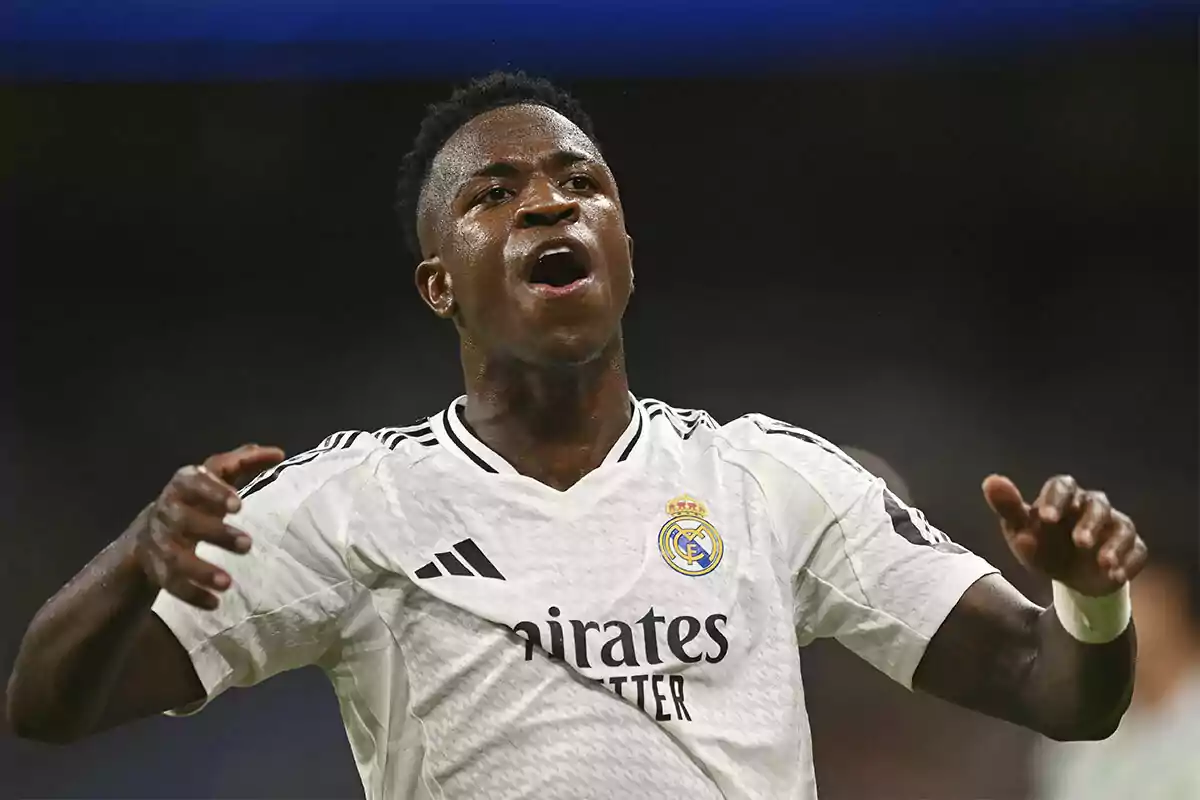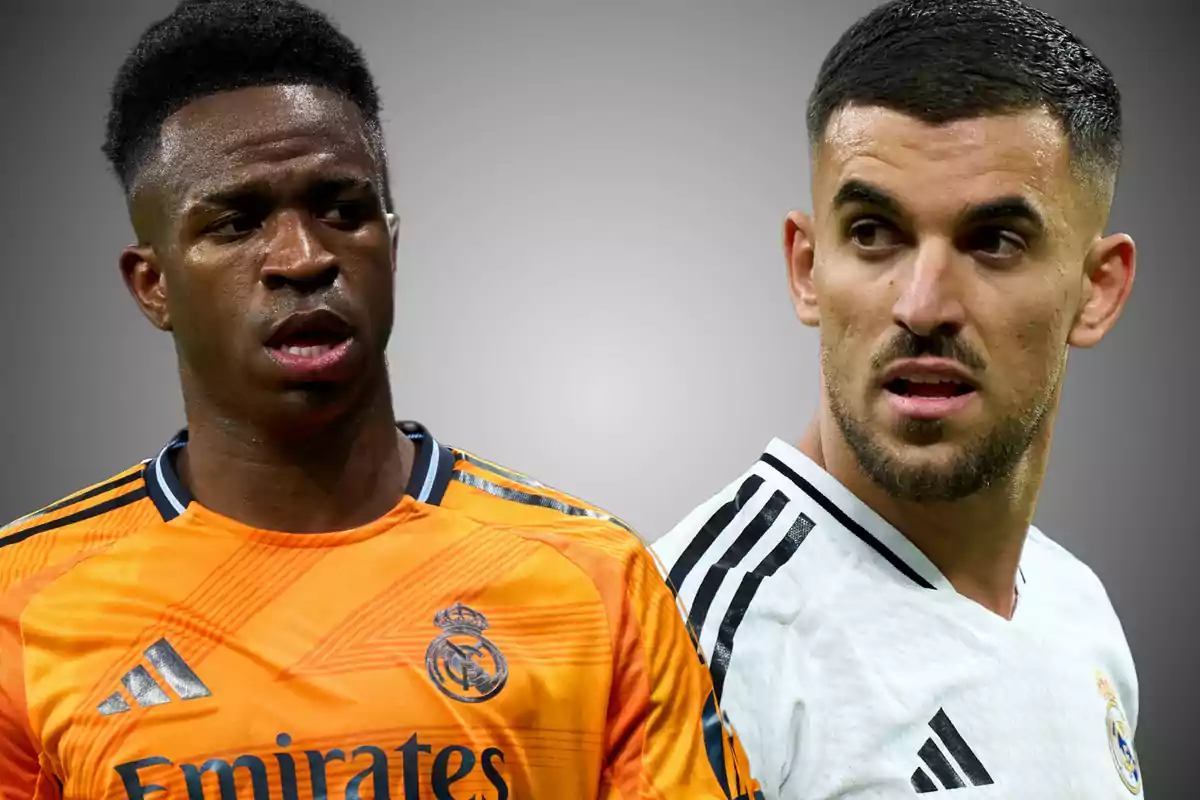Real Madrid experienced a complicated day after their narrow defeat against Espanyol. A result that left the players and fans with a bad taste, especially due to the team's poor performance. The controversy was not only about the foul on Mbappé but also an internal argument between two players.
According to reports from Madrid Universal, Vinícius Júnior and Dani Ceballos had a heated argument during the match, which reached Carlo Ancelotti's ears.
Vinícius Júnior's frustration
Vinícius Júnior, known for his temperament and passion on the field, clearly showed his frustration. During the match against Espanyol, the Brazilian was not happy with the number of balls he received from his teammates, especially from Dani Ceballos.

According to sources, Vini felt ignored and upset by the lack of passes from his teammate. The situation became tense, as the forward expected to receive more opportunities to face the opposing defense, but the reality was very different.
Ancelotti also intervened
The tension between Vinícius and Ceballos didn't go unnoticed by Carlo Ancelotti, who also expressed his dissatisfaction with the situation. The Italian coach, known for being calm and focused, asked his players to pass the ball more to Vinícius.
Ancelotti knows the potential of his young star and his key role in the attack, so he intervened to solve the conflict. However, Vini's frustration didn't dissipate immediately.
Lucas Vázquez steps in
The argument reached a point where it was necessary for another team player to intervene to calm the situation. Lucas Vázquez, one of the veterans and a reference for unity in the locker room, was the one who tried to mediate between Vinícius and Ceballos.
According to sources, Lucas spoke with the Brazilian to relax his attitude and not let frustration affect his performance on the field. In situations like this, Lucas plays a key role due to his good relationship with the players and his ability to calm tensions.
Although Real Madrid players value unity in the locker room, situations like this are common in high-level teams. Internal competition, the desire to shine, and the nerves of important matches can cause certain frictions. The ability to quickly solve these conflicts distinguishes winning teams from others.

